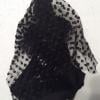Search the Community
Showing results for 'reactive hypo'.
Found 1,425 results
-


Hypoglycemia, glucose tolerance test, and a reset
Healthy_life2 replied to Wallflower7522's topic in WLS Veteran's Forum
Hi there, Sorry to hear of your struggles. We don't have the same type of surgery but I have reactive hypoglycemia. Some of us will develop this as a complication from surgery. Sounds like you are managing it. I use a glucose meter. I usually know when my blood sugar is crashing. I can feel it coming on. I agree this takes work even years out. I have times when I'm doing well. When I'm not, I peek back in here to get back on track. Wishing you the best, Jenn -
@ Grave's disease here too. Had my thyroid destroyed by RAI (radioactive iodine) swallow when I was in the Navy Sometime in 1999. Been Hypo and on Synthroid since 1999. I am Pre-op and hope my thyroid does not hinder my weight loss progress. Time will tell. Currently on 300 Mcg tablet once a day and skipping Sundays. I never knew about taking it with Calcium..will have to watch for that. I take it everynight at bed time and my levels have been steady ever since. I see an Endo once every 6 months, I find the Endo knows a bit more about Graves then my PCP.
-
@@Daisee68 Yes, I kept my beta blocker for "just in case". I have both propranolol and atenolol, and I am glad that I kept both. This disease can make life so much harder, especially when trying to get back on track with all the responsibilities, and social interactions. I have been on 100mcg of Thyroxine since January this year. 4 months after my RAI and thyroid destroyed, I swung to TSH 17.4 Now, back to square one .... My Endo doesn't want me to cut my pills (ironically I got another refill for more 100mcg script, recently, and still have 1/2 box of the currrent 100mcg .....) She just wants me to take my med for 6 days, then not take it on 1 day per week. So, I am to take it Monday-Saturday, then not take it on Sunday My blood tests are due in 6 weeks time, then again 6 weeks later. Yes, I have to monitor it carefully. If in 2-3 weeks I don't see a change, I may have to cut the tablet, and try it that way. I don't want to go hypo, but hyper is tough too ..... Thank you for your support.
-
I agree with the suggestion about seeing a nutritionist. Perhaps the calories you're taking in aren't quite the right kind for you. I do notice that for me, the scale moves lower if I eat more...but only if it's good calories (Proteins with a very few whole wheat carbs). Keep track of your foods religiously for a couple weeks before you see the nutritionist so s/he can pinpoint where things could change. I love the app Lose It, but others prefer My Fitness Pal. Good luck!! you'll get there!! ETA: PS I am hypo too and so far my meds haven't changed since having the lap band. Are you taking them in the morning on an empty stomach (no meals for 30min to an hr)? For the first year of taking Levothyroxine, I didn't know that you had to do that. I take it right when I wake up before my shower and morning routine.
-


Gastric Bypass Surgery Ruined My Life
James Marusek replied to acuri08's topic in Tell Your Weight Loss Surgery Story
Several people who underwent RNY gastric bypass surgery developed hypoglycemia. It is somewhat common. It doesn't seem to make any difference if they were diabetic prior to surgery or not. This is a specific type of hypoglycemia called "reactive hypoglycemia". These are a few links to this condition. https://www.ridgeviewmedical.org/services/bariatric-weight-loss/enewsletter-articles/reactive-hypoglycemia-postgastric-bypass/ http://www.weightlosssurgery.ca/before-after-surgery/reactive-hypoglycaemia-post-gastric-bypass/ http://www.todaysdietitian.com/newarchives/060415p48tip.shtml Probably the main point is that there are steps you can take to significantly minimize the effect of this condition on your body. -


Anyone with hyper/hypothyroidism?
RellaBelle posted a topic in POST-Operation Weight Loss Surgery Q&A
Hey y'all! So I'm scheduled for vsg March 14th and went in for blood work on Monday to make sure all my levels were ok. The results came back saying my cholesterol was a little bit high and my thyroid levels were low. The nurse then called me back to say the Dr told her to tell me that I may have hyperthyroidism... which is od because I thought low levels meant your thyroid was under active and hyper meant it was over active, yes? I'm assuming she just got it backwards and meant to say I may have hypothyroidism. ANYWAY! The Doctor wants me to come back in 6 weeks for more blood work... why he wants to wait 6 weeks is beyond me, I guess to see if the levels change and maybe it was just a one time thing? I don't know. Either way, for those who have either hypo or hyperthyroidism... how has it affected [effected? lol] your journey? Did you find you lost slower than others? Thanks in advance! TLDR: How has hyper or hypothyroidism impacted your vsg journey? -


Where are these trolls coming from?
Creekimp13 replied to goldenbarbie's topic in Gastric Sleeve Surgery Forums
Denmark, Norway, Sweden,Finland and Iceland. Trolls are Scandinavian in origin. Ever notice how people who have lost their favorite coping vice....and are really freaking hungry...can be really really...bitchy? And also really touchy and reactive about other people who they perceive are being bitchy? Hell, I'm guilty of it. Probably of both. Sure don't mean to be. I'm not pointing fingers at any particular party....just something I've noticed. People get extra angsty and on edge when they're stressed and have one of their main coping mechanisms missing. This whole adventure has tough moments you don't expect. Emotionally difficult spots that might show up as fangs instead of tears. Something to keep in mind. PS...if anyone asked me if I went to the gym in real life, I'd probably smack the **** out of them. If they're not a close friend whose kind intent I was certain of...without the context of real love and support....it's a rude question. Just sayin' -
I don't have a thyroid due to cancer so I'm definitely hypo. When I was at 286, I was on 200 mcg of synthroid. At 240 I was placed on 175mcg. Just last week at 208, I was placed on 150mcg. What I do is call my endocrinologist, leave a message with the nurse, stating my current weight and whether or not I need an adjustment. The Dr. Calls me to say go to the labs and get the bloodwork done, then based on the results decides whether to change my meds. It is not always immediate based on the weight loss alone. The Dr said it takes awhile for the body to adjust so they wait until lab results to determine if it's time to lower the dose.
-
Hi! Can you tell me what reactive hypoglycaemia is and how you deal with it?
-


Hardest thing for you?
moonlitestarbrite replied to snowkitten's topic in Gastric Sleeve Surgery Forums
in the last five years i have done a lot of research on how to reduce inflammation in the body without drugs. i have issues, but managed to reduce my reactive C protein markers down into the normal range. my MIL has lupus and my good friend has both scleroderma and fibromyalgia.. all autoimmune disorders related to abnormal inflammation in the body. PM me your email or FB info and i will send you a few things. you can also like my FB page "whole health wellness" where i post a lot of things on reducing inflammation thru natural means. -


Liquid diet struggles
ronjsteele1 replied to TheAngryMeow's topic in PRE-Operation Weight Loss Surgery Q&A
I start my pre-surgery diet in just over a week (one day before my 50th birthday). Blossom requires protein shakes for breakfast and lunch and a lean meat for dinner. My biggest fear is how to survive on that few calories for two weeks. First, I don’t sleep if my stomach is growling. Second, my blood sugar is going to tank which makes driving unsafe bc it makes me want to fall asleep at the wheel (I have reactive hypoglycemia). How on earth do people deal with these types of issues on so few calories?! If I could subsist on 600 calories a day I’d have been doing it a long time ago. 🤦♀️🤦♀️🤦♀️ So I’m more worried about the peripherals then anything. Forging ahead no matter what but a bit concerned about the pre-diet. -


I am scared to get GERD, please give me advice
RickM replied to AchieveGoals's topic in Gastric Sleeve Surgery Forums
Most any surgery that you can contemplate, in addition to the basic risks associated with surgery, hospitals and anesthesia, will have some risk of side effects that may be less than desirable, however we take those risks in order to correct a problem that we have created by injury, disease or genetics, with the intent that the result will be much better than what we started with. The various bariatric procedures have different predispositions to consider - conditions that happen more commonly than in the general population. The VSG is predisposed to GERD as the stomach volume is reduced much more than its' acid producing potential, and while usually the body adjusts and corrects the problem, sometimes it doesn't completely. Similarly, the RNY is predisposed to marginal ulcers (typically around the anastomosis) because the part of intestine to which the stomach pouch is attached is not resistant to the stomach acid like the duodenum is (the part of intestine immediately below the stomach outlet, which is bypassed along with the remnant stomach.) Likewise, it is also predisposed to dumping and reactive hypoglycemia owing to more rapid stomach emptying due to the lack of pyloric valve. Usually, these problems don't hit most patients, or don't persist if they do, but sometimes they are long term problems. These are things to consider ahead of time, particularly if one has any relevant pre-existing condition. Another consideration is that the VSG is fairly easy to revise if it does run into a problem that can't be resolved otherwise, while the RNY is difficult to revise or reverse. Another point to consider is that while the sleeve leaves behind a relatively "normal" anatomy, the bypass leaves a blind stomach and upper intestine which is more difficult to examine endoscopically, so some problems may not be diagnosed until they are more advanced and symptomatic. For instance, if one is subject to stomach polyps, that is a pre-cancerous condition that should be monitored, but is difficult to do after a bypass. An pre-op endoscopy is a good idea to understand what is happening inside you, even if your program doesn't require one. On the diabetes front, they both do well, typically seeing 75-85% remission rates (remission is what it is, rather than a "cure" - it can come back, particularly with some weight regain) though the bypass is generally considered to be marginally better. The best results come from the Duodenal Switch which typically shows remission rates in the 98-99% range, but that is a more complex procedure that few surgeons offer. However, if the diabetes fails to go into remission, or comes back, after a VSG, a revision to the DS is straightforward (as the DS uses the VSG as its basis) while revising an RNY to a DS is very complicated, which only a handful of surgeons are able to perform. So, while the VSG may not be quite as good as the RNY in that respect, it has a much more viable "plan B". -
*** hanging head low*** I get "hypo" and "hyper" thyroid confused. I have to take meds cause my thyroid is slow. Did I finally find a delicious milk product that I'll actually drink, only to learn it will hamper my weight loss? Is whole milk the same as 1%? Regular milk is too thick, so if I drink milk it's only 1-2%. Betty and Alex, you girls just have to try this stuff. Maybe I bought sweetened or something? But it's like drinking Carnation Instant Breakfast or eggnog. I can't believe how good it is. I started reading labels when I bought the stuff, but there are about 25 different containers of soy milk, which is why it was easier for me to ask here. The carton I bought had all sorts of health benefits from Protein to Calcium.
-
I'm hypo and have now lost about 155-ish pounds in round numbers from my recent high weight. I'm also on a drug called Femara that causes you to gain weight and am very insulin resistant with PCOS. It's tough. I had to obsessively watch what I put in my mouth, keeping things very clean, low carb and low fat. I kept my cals between 600-800 to lose (closer to the 600 end). I still have to be around 650 or so to lose. I maintain in the 900-1200 calorie range. At 7 weeks I was eating around 400-500 calories and 6 mini meals per day of less than 100cals each. Averaging 75g of protein per day as my goal.
-
Obviously, patients should not violate dietary restrictions imposed by hypo- or hyperglycemia. However, barring these medical conditions (most of which go into remission after weight loss), there is absolutely no empirical evidence to support the effectiveness of abstinence from certain foods in weight loss and weight loss maintenance: NONE. Barring the aforementioned medical conditions, rigid abstinence from certain foods, such as a hamburger or piece of cake, is a psychological issue, not a medical one. I can write this with confidence as a professor of psychology who worked in the field of addictionology for over 15 years. The problem with abstinence is that it leads to the well-documented abstinence violation effect: I must abstain from doughnuts. If I break down and have just one, then I must have 100. This effect is psychological, not medical. There is no more evidence to suggest that compulsive eating is a physiological addiction than alcohol dependency is a disease. Porting over the AA philosophy of disease and allergy to overeating is a psychological travesty. I challenge anyone who disagrees with this to present empirical evidence to the contrary that has been published in a referred professional journal. You won't find any. Granted, abstinence may be temporarily working for someone (although it won't over the long haul). However, this does not mean that those wedded to the abstinence model should try to shame those who are trying to learn how to eat in moderation. The underlying premise of abstinence is unfounded, shaming and chastising are never helpful, and that kind of post is entirely self-congratulatory. If I were unable to eat, for example, one hamburger without obsessively craving more and more of them, I'd see a cognitive-behavioral therapist who specializes in eating disorders. I would not be attempting to shame those who are able to successfully eat just one in an attempt at denying and avoiding my own highly conflicted relationship with food. Doing so may not rise to the definition of Nazism or fascism, but maybe we can all agree that it's not very nice.
-
Another factor in daily fluctuation are inflammation reactions we have to certain foods. Google The Plan by Lyn Genet and you will get more information. When you are cleared for all foods, or if you already are, her 20 day plan is a good way to find out which foods are reactive for you. I did it and found that I am highly reactive to cabbage and tomatoes. Many of the foods that 90% of people are reactive to are on the healthy foods lists for most diets (oatmeal, turkey, black beans, tomatoes). It's very enlightening to read her book and go through the Plan. I was stuck not losing for 5 days when I should have been losing a half pound per day when I finally realized my salad mix had red cabbage in it. Well I checked the book and sure enough, cabbage was on the 85% reactive list. The next day I picked those little pieces of cabbage out and I was down 3 lbs the next day! I became a believer that day :-)
-
OM, YES! I first called my gastric band Dr.'s office and they said the pain I was having wasn't related to the band. So I call my regular physician and she tells me to take gas relief pills or heart burn meds and if it is still bothering me in a few days to come in. So, a few days later I come in. She runs all types of test and everything is normal except the c-reactive test. Took almost a week to get an ultrasound...I too thought it was ovarian cysts or appendix since I was told it's not band related and the pain was that bad. Go in for a fill and they can't get Fluid back out..uh oh better have the doctor see me. Wait another few days and uh oh - yep there is a problem. GRRR, I am so mad right now. Now I have to wait for them to get the paperwork to the insurance to find out if its covered. Hello, I can't sleep at night because I can't get comfortable...sorry, I needed to vent. I am glad to hear everything turned out ok for you once they finally repaired it. How long did it take you to get surgery once they figured out what was going on? Thanks for replying! TJ's Mama
-
Exactly this! Now I literally eat what ever I want because I exercise a lot. Early on, my cravings were for protein, fruits, and veggies. I do not eat much in the way of concentrated sugars at this point, due to reactive hypoglycemia, (said as I munch on some teddy Graham’s). 🤦🏼♀️With that said, I am in maintenance, ran 4 miles today, and do not want to lose weight. In maintenance, you can eat foods you want to eat providing they do not make you physically ill or cause you to gain unwanted weight.
-


Best OTC Acid Blocker
RickM replied to Timberlynn Sleeved to DS's topic in Gastric Sleeve Surgery Forums
The VSG is somewhat predisposed to reflux, meaning that a greater proportion of those with that surgery will have that problem than the general population. The sleeve reduces the volume of the stomach much more than its' acid producing potential, and sometimes the body doesn't fully adjust to that. The bypass in comparison is predisposed to dumping syndrome, reactive hypoglycemia, marginal ulcers and mineral deficiency disease, so there are trade offs with whatever route one chooses (and with doing nothing, given all of the obesity related diseases that we are trying to avoid!) This is not unusual when we change things in our body - surgery of any kind changes things and sometimes there are negative aspects, or risks of, along with the positives. Medications change our body chemistry to solve a problem, but sometimes there are side effects that are negatives. It is routine for patients to be given a PPI for a while after any WLS, or even on GI procedures - I was put on pantoprozole for a month after a minor cardiac procedure I had a few months ago simply because when the body is under stress (like form surgery) it tends to over produce acid. So, being on a PPI at this point is normal, and nothing to worry about. -
He was so much fun, and no they dont stink if you feed them right and they are hypo-allergenic and clean- he loved to take baths- and honestly just flippin cute!
-
Seventh Generation Unscented Baby Wipes Aloe List Price: 19.95$Sale Price : Click to see the sale price Seventh Generation Unscented Baby Wipes Aloe 7, 0 x 7, 9 in, Soft & gentle, All natural lotion with aloe vera & Vitamin E; Hypo-allergenic; Whitened without chlorine bleach, Our baby wipes are moistened with natural aloe vera, Vitamin E, and water to cleanse and moisturize gently and naturally, Unlike many traditional baby wipes, ours are not bleached with chlorine and do not contain alcohol or synthetic ingredients that can irritate baby's skin, You Can Make a Difference : Please reuse this container with our refill pack, Each refill pack uses 90% less packaging than a hard plastic container, Be kind to your baby and the environment, Not tested on animals, No animal ingredients, Binding:Health and Beauty Brand:Seventh Generation Feature:All-natural wipes moistened with aloe vera, vitamin E, and water Feature:Chlorine- and alcohol-free formula gently softens baby's skin Feature:Environmentally sensitive design minimizes impact for "next 7 generations" Feature:Not tested on animals; reusable container Feature:80 unscented wipes measuring 7.1 by 7.9 inches Label:Seventh Generation ListPrice: Manufacturer:Seventh Generation NumberOfItems:5 PackageDimensions: ProductGroup:Health and Beauty ProductTypeName:HEALTH_PERSONAL_CARE Publisher:Seventh Generation ReleaseDate:2006-06-12 Studio:Seventh Generation Title:Seventh Generation Unscented Baby Wipes with Aloe Vera & Vitamin E - 80 ea (Pack of 5) Click Here for More Details ! Do not Miss It!! Source
-


VSG to ESG Surgery??-Why??
RickM replied to teedsg's topic in Revision Weight Loss Surgery Forums (NEW!)
Second guessing and some regret is normal when one runs into problems. It is well to realize that whatever road you chose in the past was likely to be bumpy, even if the bumps might have been different. The bypass, in addition to having its own quirks (someone just showed up on today's recent topics column who is having reactive hypoglycemia problems - that's one of those quirks,) that can cause regrets, would not likely have been any better on helping you with your regain (RNY and VSG are very similar in that regard,) and is also more difficult to revise should you have had problems. So, there is (and was) no easy, straight answer. We follow what looks like the best road for us and take what life throws at us over time.. -
Gold and silver are softer and therefore more porous on a microscopic level, and can "pit", meaning bacteria or other irritants can cling to them. They can also flake off into the open wound, and are more reactive with body fluids. They're generally fine for a healed piercing (which can take a few weeks to several months depending on what kind of piercing it is), but because they're not as hard and non-reactive as something like surgical steel or titanium. I worked, unfortunately, at a Claire's in a mall for several years when I was in college, and I know that stores like that push gold as being "safer" when really it is "more profitable". I had nothing but problems with piercings done in gold with a piercing gun. I have since gotten SEVERAL more piercings done with a single-use hollow needle at a piercing parlor, and have had none of the same issues. The right establishment should almost feel like a medical office.
-


THE SLOW LOSERS CLUB SUPPORT THREAD
Serengirl replied to Serengirl's topic in Gastric Sleeve Surgery Forums
No but I do have PCOS and endometriosis and I am insulin resistant. I used to be Hypo thyroid and right around surgery it was fine and I am due for my blood test because it changes often so I might have to go back on meds for that (my dr took me off ) if its out of balance now. -
Prior to surgery I had Idiopathic hyperhidrosis, or excessive sweating for several years. Shortly after surgery this condition went away. I am now 5 years post-op and that condition is no longer a problem. This weblink list 10 causes of night sweats. http://www.activebeat.co/your-health/10-common-medical-causes-of-night-sweats/ #4 and #10 look interesting. Do you have other symptoms that pair with these conditions. Many people develop a condition called reactive hypoglycemia after bariatric surgery.














